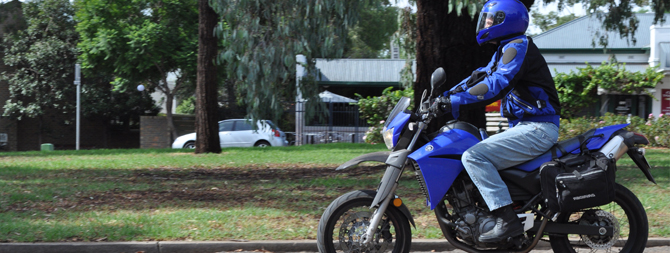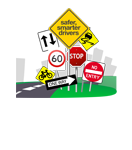
Moving Right Along
Are you worried about someone's driving?

It can be difficult to know what to do if you have concerns about someone’s driving. This web page provides tips and information for family members, friends and others about things to consider.
It is ability, not age that determines whether a person is a safe driver. Generally everyone will need to stop driving at some point, as people don’t retain the ability to drive indefinitely.
Many drivers self-regulate their driving to stay safe on the road when they feel some driving situations, such as driving at night, are becoming more difficult. Many drivers will recognise when the time is right to start retiring from driving, but others need guidance to identify when their driving is becoming unsafe.
Starting a conversation about driving
Many people experience situations where they are concerned about another person’s driving. It could be a family member, parent, or a close friend. A conversation with the driver is a good starting point. Successful conversations begin with good preparation, and not all conversations about driving go smoothly. Some people may worry that retiring from driving is a reflection of their competency and fear the potential loss of their mobility and independence.
The following three resources can assist you to prepare, have the conversation(s) and what to do to follow up conversations about driving.
Conversation Planner (PDF, 593.3 KB)
Conversation Tips – Are you worried about someone’s driving (PDF, 1.2 MB)
Conversation Tips – Planning for eventual retirement from driving (PDF, 688.1 KB)
Legal Responsibility
It is important for all drivers to be mindful of their fitness to drive and understand their legal responsibilities.
A licensed driver in South Australia, regardless of their age, is legally required to report any medical condition or medication that may affect their ability to drive a motor vehicle safely to the Registrar of Motor Vehicles.
Please contact a Service SA customer service centre www.sa.gov.au/contactus or call 13 10 84 for information regarding reporting a medical condition.
The consequences for failing to notify a reportable medical condition and continuing to drive are severe.
If involved in a crash:
- you may be charged with driving offences and with failing to notify a reportable medical condition
- you may be sued for any damages to people or property caused by the driver in that crash
- your private car insurance coverage may be affected.
Tips for helping a driver to stay safe
Some of the well-recognised factors that keep drivers safe for longer include:
- staying as healthy and physically active as possible
- keeping up to date with changes to the road rules. Suggest referring to the Australian Road Rules or doing online tests such as the online road rules refresher quiz.
- checking with a health practitioner about the possible effect of medicines that are being taken on driving ability.
- checking the safety rating of your vehicle. A car with an ANCAP 5 star safety rating can assist you to avoid a crash and provide increased protection if you are involved in a crash.
- always wearing a seatbelt. It is required by law no matter what age a driver is. Wearing a seatbelt doubles the chances of surviving a serious crash.
- having regular eye tests and medical check-ups
- consulting your doctor if you have any concerns about your health and general fitness and talk to them about what this might mean for your driving.
Other resources to help guide conversations about someone’s driving
There are resources available that model the do’s and don’ts of how to approach a conversation about driving. See the following link to the UK video Still safe to drive.
In South Australia, the Southern Services Reform Group, in collaboration with the Southern Metro Community Passenger Network, produced a series of 3 short films about the issues surrounding dementia and driving.
Supporting someone with impaired capacity to make decisions
Some people may have a medical condition that impairs their decision making capacity and may require support to participate in the decision to stop driving, or to understand their legal requirement to stop driving.
Further information
Occupational Therapy Australia
Occupational Therapy Australia’s website includes a search facility for private practitioners qualified to conduct a practical assessment of how a person’s medical condition impacts on their ability to drive.
Austroads Health Professionals Responsibilities
South Australian laws requires health professionals to report health conditions that impact on a patient’s ability to drive safely.
For further information see Austroads Health Professionals Responsibilities



































